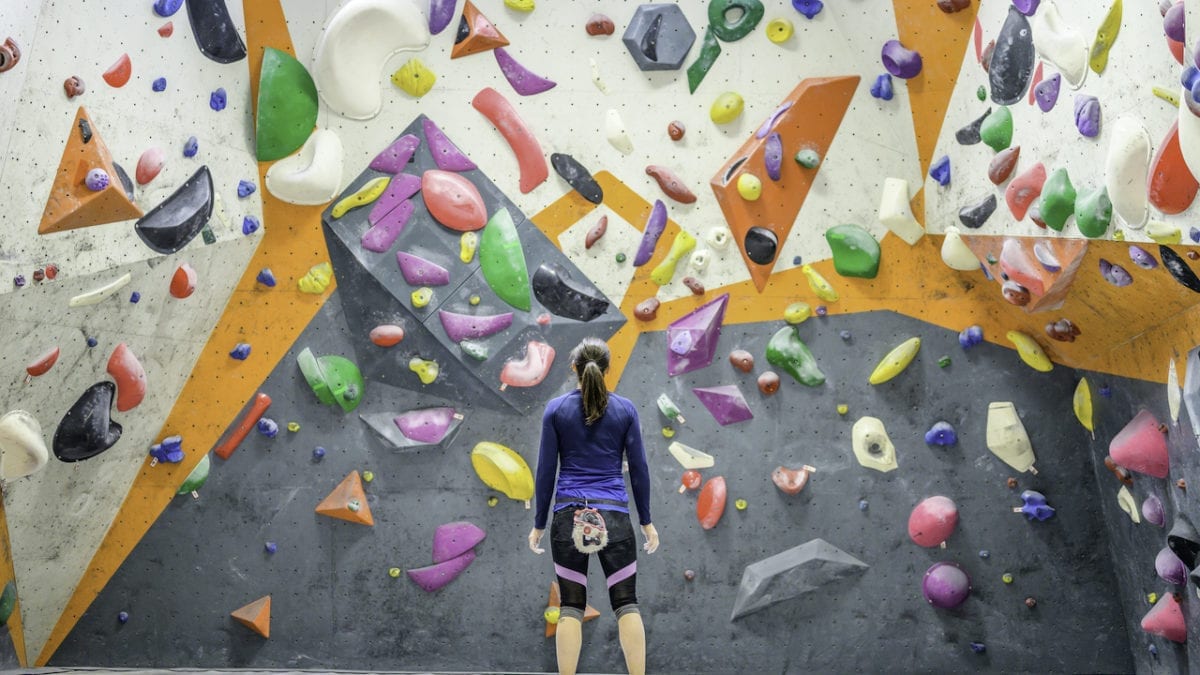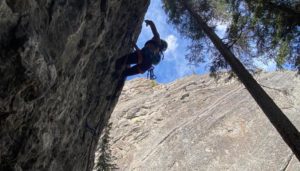Climbing Grades and Overcoming the Obsession
Climbing grades are easy to obsess about and sometimes make it difficult to just enjoy the session. Just remember that they're only one aspect of the sport.

It’s not easy to deal with difficulty. No matter how you slice it, climbing becomes a heck of a lot more fun when you feel strong. Climbing grades show the climber their ability in certain terms. At least they seem to. If you climb long enough, and care deeply enough for long enough, it becomes difficult to escape the grade trap. Plateaus feel like regression and regression feels bad. How can we find that love for the sport again? How do we escape this trap?
Why did you start climbing?
This question probably has a lot of answers. Our editor can think of several reasons they started climbing and grades number among them. Grades offer the climber a metric that seems to show how effort equals progress. In that way, they become addicting. Still, if you can remember the other reasons you began climbing, perhaps you can re-find your love for the sport. Did you love being outside? Were you attracted to the community? How did training bring you in? Did you love finding a sport where you could have genuine alone time. Did you love having an unparalleled level of focus? Whatever your reason, try and consider it over grades.
Many will have already tried to do this. That makes sense. Anyone that has come to realise that they have a problem with grades, also realises that this problem’s solution comes from the other aspects of the sport. Telling you that grades only make for one part of climbing might not seem all that helpful. Still, it will ultimately pull you from this hole.
Furthermore, might help you to think about grades as something that adds to climbing instead of the reason for climbing. It also might make sense to ease the pressure off of your progression. Climbing grades are not regularly spaced. V8 offers at least three or four times more physical difficulty than V4. Naturally, it should take you at least three or four times longer to reach V8 than it took to reach V4. Even this statement only becomes true if you can offer the same amount of new stimulus to your body as in those first months of climbing.
Progression comes easily when you begin climbing because the beginner has to use muscles they have never touched before. The climber can only improve. While this trend can be maintained, the threshold changes. All of a sudden three two-hour sessions a week do not leave you destroyed in the same way it did when you climbed V2. You have a base level of fitness that forces you to try extremely hard to maintain quick progression. As a result, go easy on yourself and take the time.
While this thought process might help, it still does not detract from the standard you have set for yourself. Many climbers feel like they should have become stronger by this point in their climbing career, but what does that mean? Stronger than who? Taking time to reflect on whether you compare yourself to other climbers is important. Comparison destroys a person’s enjoyment of the sport and, with social media, has become extremely difficult to avoid. You might see another person with your body-type flashing your project, but you never see the other aspects of their life. You never see their training plan. If all they do is climb then yeah, they probably will improve faster than you. If you climbed exclusively, you would improve more quickly as well.
To that effect, have an interest outside of climbing. Whether that interest comes from work or from school or from painting, find the thing that you can pour your time into when climbing feels tough. Even Olympian Michael Piccolruaz studied through World Cups to achieve an undergraduate degree because climbing does not come with inherent success. If an Olympian feels the need to slightly diversify their interests, maybe you should too. To that effect, maybe a plateau offers the climber an opportunity to switch disciplines. As we have already discussed, beginners see progression quickly. If you have limited route experience because you exclusively boulder, then hop on a rope. It will feel good to progress quickly again.
Finally, climb with people that make climbing fun. These people force you to have a good time because you do not want to bring down the energy. Even lone wolfs can benefit from climbing with positive people every now and again. These people have found that love for climbing that exists outside of difficulty. Some people fear climbing with others due to the comparison factor, but a good climbing partner will always consider your last a burn a good one. Talk to your friends. Tell them what you need from a good climbing session. Maybe you do not want any beta or anyone to talk about how well or poorly you have climbed. Your friends should be able to offer you the support you need.


